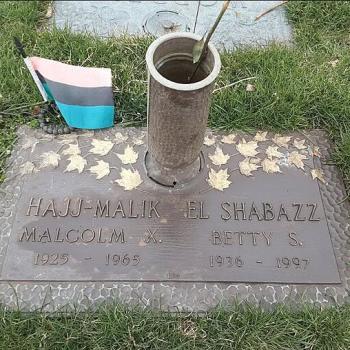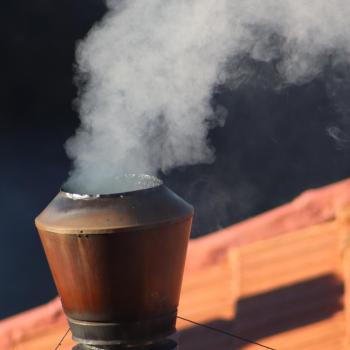There's so much we don't know about the Middle Eastern revolutions. What will Egypt look like in six months? One year? Two years? Will we see another autocracy, a fledgling democracy, or the beginnings of one or more Islamic states? We cheer the seemingly westernized young protestors as they set Facebook and Twitter alight with their calls for freedom. We shudder when hundreds of thousands celebrate the Muslim Brotherhood. There's so much we do not—and cannot—now know.
But there is one very important thing we know with a high degree of confidence. The current revolutionary wave is not led by al Qaeda. Egypt's and Tunisia's uprisings were not "jihads" like those in Iraq and Afghanistan. While their fruit may be poisonous in the end, Osama bin Laden cannot take credit for their success, and—as a sharp New York Times analysis noted—the revolutions have left the most violent jihadists to look on as "bystanders."
Why? We often look first for political and cultural reasons and so we (perhaps because so few have served) miss the military explanations. According to some commentators, these revolutions prove that neo-conservatives were right about the universal yearning for democracy and liberty. Others point to specific policy initiatives in the Bush and Obama administrations. Still others talk about the cultural changes in Arab youth. And there's no doubt that the reasons for the revolution are as complex and varied as those for any revolutionary movement.
But there's a very simple military reality that has decisively shaped the Middle East, at least over the short term: Jihadists gambled on Iraq and lost, and in their gamble, they poured extraordinary amounts of money, material, and manpower into a horrific, grinding, relentless, and ultimately destructive conflict. The shock troops of international jihad—much like Hitler's SS in 1945—are largely dead or detained, victims of American military might. Perhaps it was providential.
It's easy to forget what the world looked like as recently as 2006. Iraq was in the throes of a civil conflict that threatened to tear the nation into pieces, with one portion ruled by Sunni jihadists (al Qaeda had already redubbed Diyala Province, east of Baghdad, "The Islamic Caliphate of Iraq" and ruled it as such); another by Shi'ite jihadists; and the third, a Kurdish piece defending its hard-won freedom from vicious enemies. In fact, leading Americans, including the man who is now our Vice President, openly argued for a "partition" that would essentially admit military defeat and create the conditions for a retreat. It would have made our political abandonment of South Vietnam look honorable by comparison.
Had that happened, al Qaeda's power and prestige would have been at an apex. They would have bested the world's only superpower and secured a base of operations in the very heart of the Middle East. Thousands of battle-hardened fighters would be available to continue the jihad, and jihadists would no doubt command the respect of millions upon millions of alienated and angry Arab youth.
But that didn't happen. President Bush doubled down in Iraq and ordered the Surge. General Petraeus and General Odierno formulated and implemented the strategy, but it was the American soldier who made it happen. It's been said before, but Iraq was a company commander's war, fought up-close and personal, with young soldiers forced not only to fight but also to become experts in local politics, customs, and culture. But the main thing they did was fight.
Our best estimates of enemy casualties are classified, but we extracted an enormous toll on the jihadists. Counter-insurgency phrases such as "protecting the population" and "clear, hold, and build" obscure the reality of house-to-house fighting, nighttime raids, thunderous artillery barrages, and relentless airstrikes. It was not always easy to keep faith.
Yet ultimately we broke the enemy's back. I vividly remember the late summer of 2008 when in Diyala Province—one of al Qaeda's last Iraqi strongholds—we felt the tide turn. Al Qaeda leaders literally gave themselves up. One told me, "I was tired of running." In 2006 and much of 2007, jihadists ruled Diyala with an iron fist. In 2008, they surrendered, or died.
The war rages in Afghanistan even as it winds down in Iraq, but when we watch joyful crowds surge in Egypt, we can thank God for the lack of suicide bombings, the relative peacefulness of the transition so far, and the absence of jihadist leadership. Al Qaeda tried to rule Iraq—tried and failed. Now it's in no position to rule Egypt . . . thanks to the American soldier.
3/7/2011 5:00:00 AM





